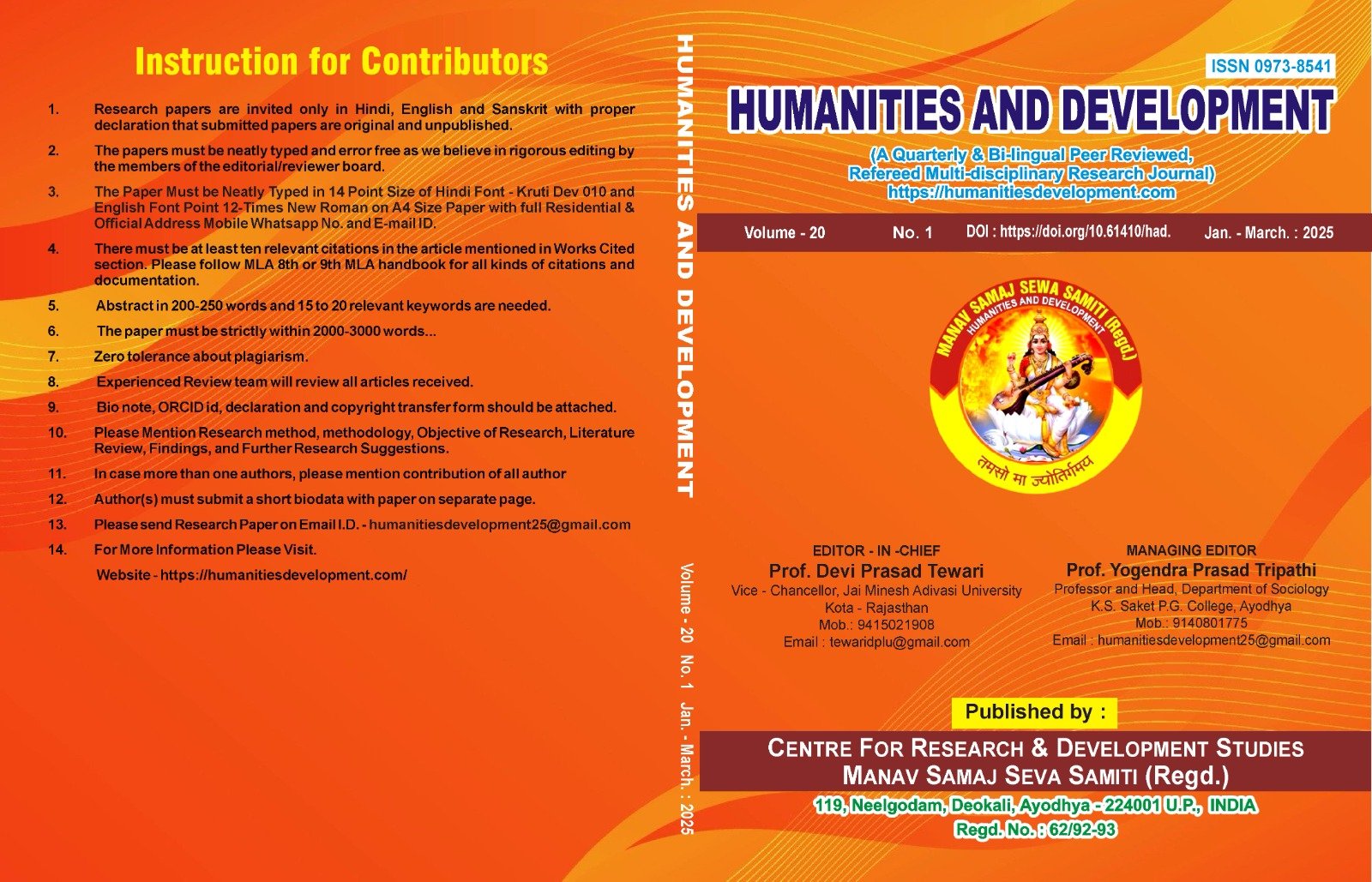RESEARCH ARTICLE: EXPLORING THE SENSE OF ALIENATION IN ANITA DESAI'S FICTION
Abstract
Anita Desai frequently explores the theme of social and psychological isolation among her protagonists, particularly women, who navigate the limitations imposed by domestic life and societal norms. Her characters often find themselves attempting to reconcile their inner desires with the external world, all while reflecting on their lives within emotionally barren environments. This research delves into Desai's portrayal of alienation by providing a deep psychological insight into characters who feel uprooted, overlooked, or misunderstood. Desai highlights the theme of emotional detachment in her novels—including 'Cry, the Peacock', 'Where Shall We Go This Summer?', 'Voices in the City', and 'Fire on the Mountain'—as a response to societal gender expectations, the chaos of urban life, familial estrangement, and the absence of meaningful relationships. In the context of post-independence India, where traditional values and modern realities intersect, leading to fragmented identities and isolation, this analysis also explores how the complexities of cultural identity contribute to feelings of alienation. To demonstrate how Desai's employment of internal monologue, a fragmented narrative format, and symbolic settings such as mountains, islands, and ancient structures reflect the inner turmoil of her characters, this study adopts both a psychoanalytic and feminist perspective. Additionally, it situates Desai's work within the broader framework of existential alienation found in postcolonial literature, illustrating how the solitude experienced by her characters conveys both suffering and nuanced forms of resistance. In the end, the feeling of alienation in Desai's literature is a reflection of the larger social upheavals encountered in a changing India, rather than merely a personal suffering. A reassessment of the individual's position in a world where connection is desired but rarely achieved is encouraged by Desai's nuanced discussion of identity, memory, and silence


